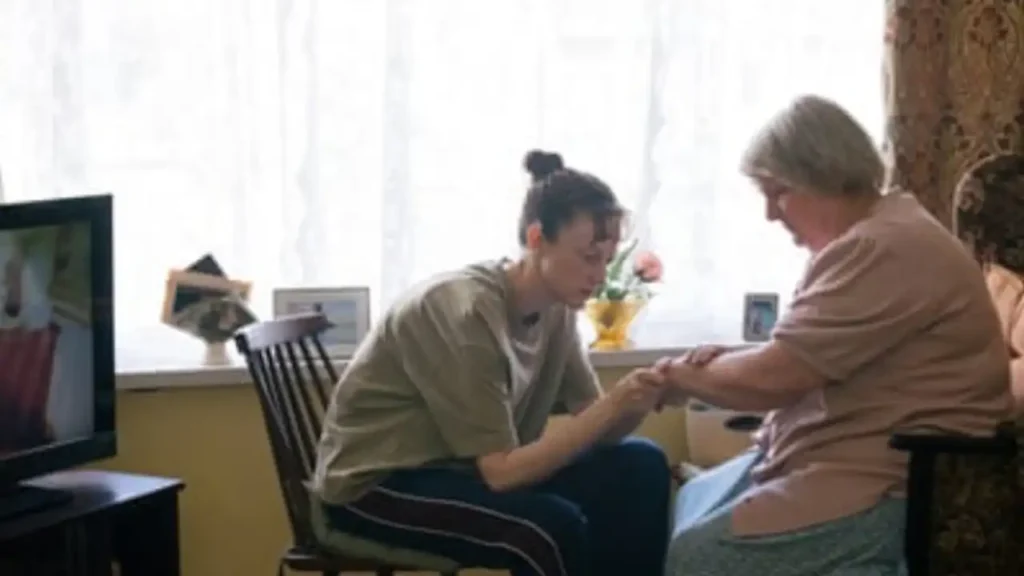Dragonfly review, a haunting and genre-defying drama exploring isolation and emotional depth in city life. A powerful story of love, loss, and urban solitude.

Dragonfly, directed by Paul Andrew Williams, is a haunting and genre-defying film that explores the deep loneliness of city life. Premiering at the Tribeca Film Festival, it blends social realism, psychological thriller, and subtle horror into a powerful story.
The film centers on Elsie, an elderly woman living alone after a recent injury. Her son, feeling guilty for not visiting often, hires agency nurses to care for her. However, these nurses are overworked and inattentive. Elsie doesn’t truly need them but tolerates their presence to ease her son’s conscience.
As their friendship develops, Colleen suggests using two-way radios to communicate, leading to late-night conversations that blur boundaries. Elsie entrusts Colleen with her debit card, introducing themes of trust and vulnerability. The tension escalates when Elsie’s son, John, confronts Colleen, resulting in a disturbing and ambiguous encounter.
Dragonfly challenges traditional genre classifications, combining elements of drama, thriller, and horror. The film delves into themes of isolation, the fear of intimacy, and the unknowable lives of urban neighbors. Williams’ direction, coupled with strong performances from Blethyn, Riseborough, and Jason Watkins, creates a compelling and emotionally resonant narrative.
This film is a stark, fierce, and wonderfully acted portrayal of urban loneliness and the complexities of human connection.
- Star Trek: Strange New Worlds Season 3 Review – Fun, Zombies & Missed Depth
- Jason Isaacs and Celia Imrie to Receive Raindance Film Festival Icon Award 2025
- Stormzy Launches #Merky Films | Debut Film ‘Big Man’ Announced
- Cal Review – Helen Mirren Shines in a Poignant Troubles-Era Romance
- Deep Cover Review: Bryce Dallas Howard Explores London’s Underground with Improv Cast